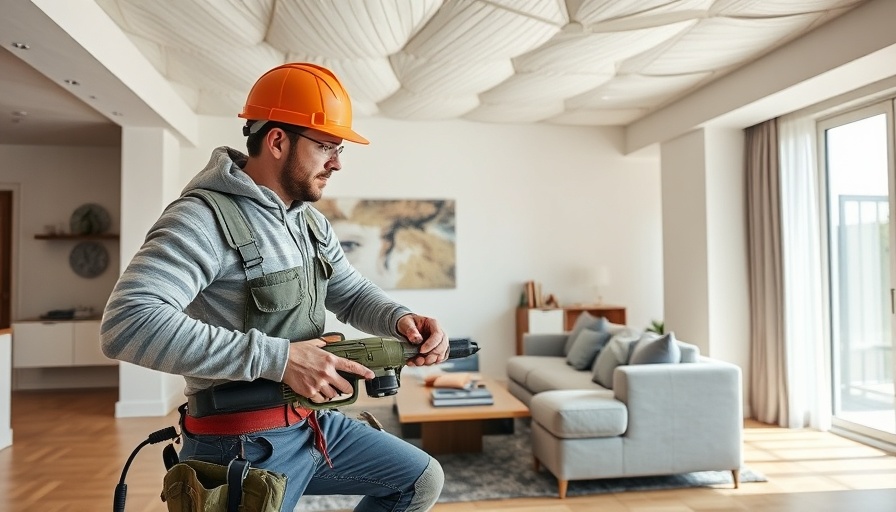
Understanding Energy Codes and Their Importance
In the modern construction landscape, energy codes have become a cornerstone of building practices. These regulations ensure that homes are designed and constructed to maximize energy efficiency while minimizing environmental impact. Homeowners are encouraged to familiarize themselves with these codes, as adherence can lead not only to reduced energy bills but also to increased comfort and better indoor air quality.
Essential Air-Sealing Techniques for Homeowners
Air sealing is a critical aspect of maintaining a comfortable and efficient home. Leaky homes allow warm air to escape during winter and let in hot air during summer, which can significantly raise heating and cooling costs. Simple strategies like using quality caulking, weather stripping, and appropriately placed foam can seal these gaps. According to air-sealing expert Randy Williams, determining the location of the air control layer is essential for success, and many homeowners can adopt a 'belt-and-suspenders' approach by applying air seals both inside and outside their homes.
Evaporative Cooling: A Sustainable Choice
As concerns grow about energy use and its environmental repercussions, homeowners are increasingly looking toward sustainable cooling solutions. Evaporative cooling systems offer an energy-efficient method for reducing indoor temperatures by utilizing the principle of water evaporation. This method not only lowers energy consumption but is also beneficial in dryer climates where humidity is naturally low. For those considering this system, evaluating local conditions is crucial to determine its viability.
The Importance of Professional Energy Audits
Engaging with professionals for energy audits can uncover hidden inefficiencies within your home. Experts like Randy Williams emphasize the value of blower door tests to identify exactly where air leaks occur, allowing homeowners to target their energy-saving efforts efficiently. This proactive approach not only complements energy code requirements but also prepares homeowners for future changes in building regulations aimed at enhanced energy performance.
Future-Proofing Homes Through Innovative Energy Efficiency
As technology advances and energy regulations become more stringent, homeowners must stay informed about new methods and strategies that contribute to energy efficiency. Investing in high-performance building materials, smart home technologies, and ongoing education about energy codes will help ensure homes remain comfortable and cost-effective in the long run. With resources and expertise available, there's never been a better time to make these upgrades.
 Add Row
Add Row  Add
Add 


Write A Comment